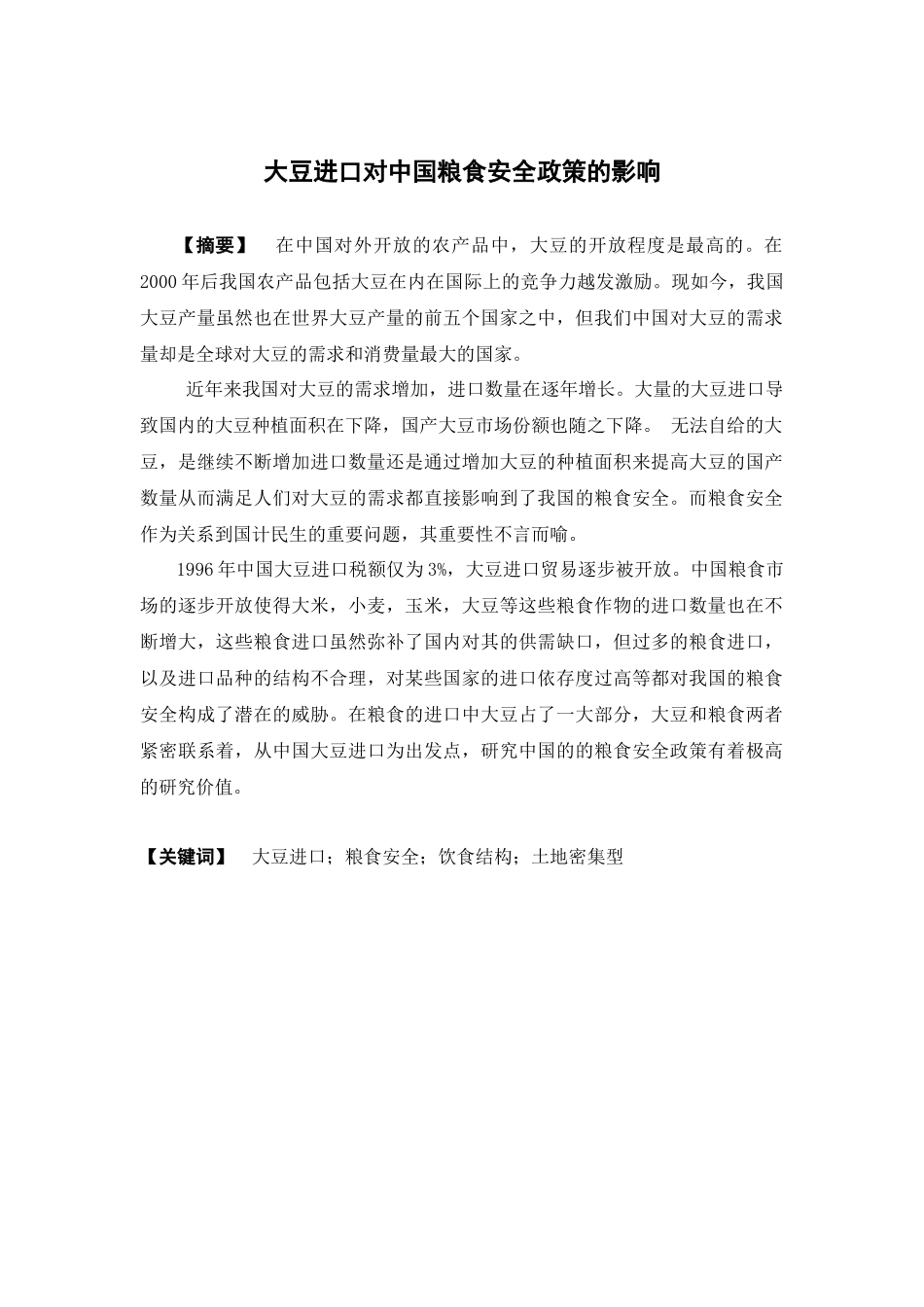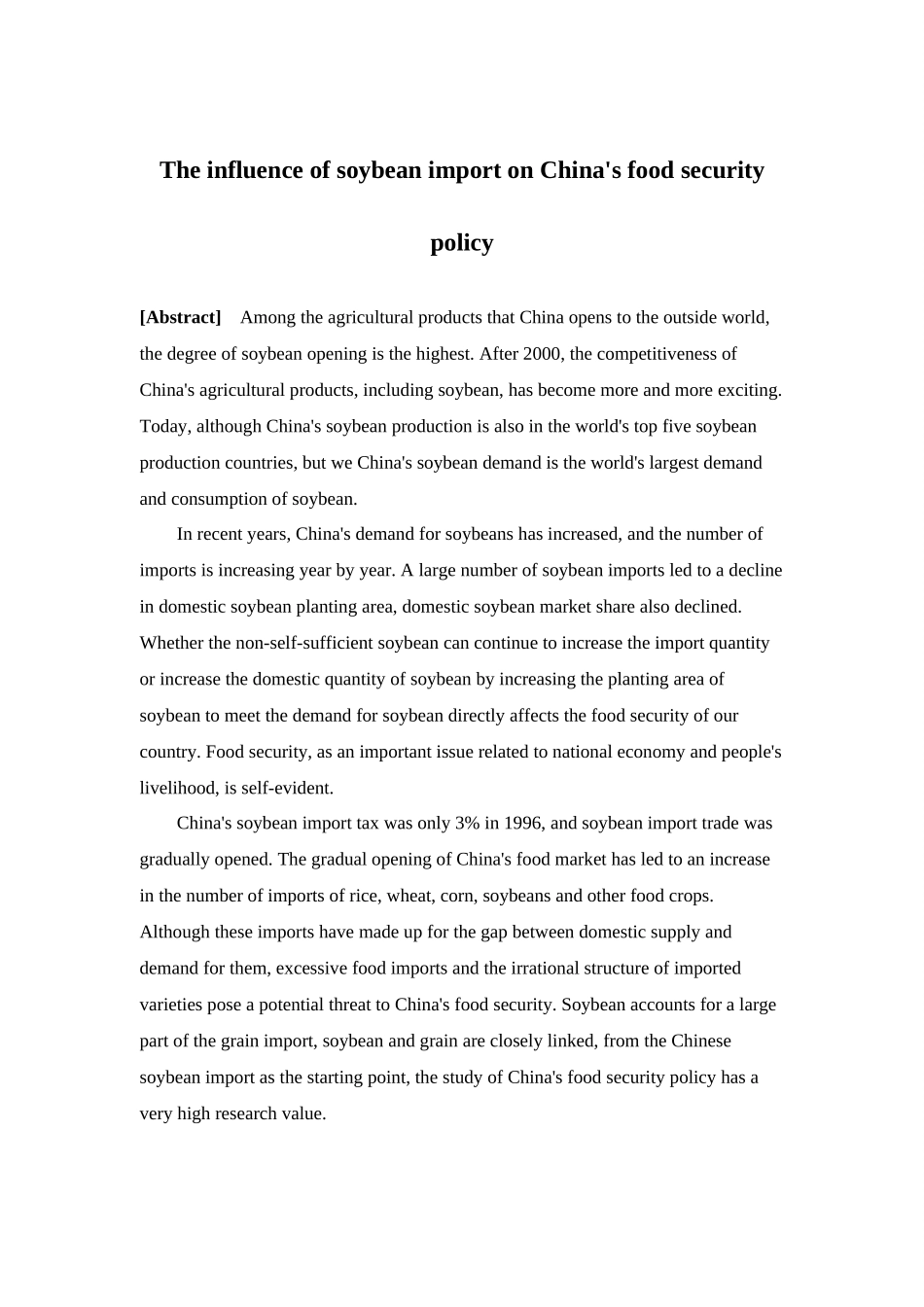大豆进口对中国粮食安全政策的影响【摘要】 在中国对外开放的农产品中,大豆的开放程度是最高的。在2000 年后我国农产品包括大豆在内在国际上的竞争力越发激励。现如今,我国大豆产量虽然也在世界大豆产量的前五个国家之中,但我们中国对大豆的需求量却是全球对大豆的需求和消费量最大的国家。 近年来我国对大豆的需求增加,进口数量在逐年增长。大量的大豆进口导致国内的大豆种植面积在下降,国产大豆市场份额也随之下降。 无法自给的大豆,是继续不断增加进口数量还是通过增加大豆的种植面积来提高大豆的国产数量从而满足人们对大豆的需求都直接影响到了我国的粮食安全。而粮食安全作为关系到国计民生的重要问题,其重要性不言而喻。 1996 年中国大豆进口税额仅为 3%,大豆进口贸易逐步被开放。中国粮食市场的逐步开放使得大米,小麦,玉米,大豆等这些粮食作物的进口数量也在不断增大,这些粮食进口虽然弥补了国内对其的供需缺口,但过多的粮食进口,以及进口品种的结构不合理,对某些国家的进口依存度过高等都对我国的粮食安全构成了潜在的威胁。在粮食的进口中大豆占了一大部分,大豆和粮食两者紧密联系着,从中国大豆进口为出发点,研究中国的的粮食安全政策有着极高的研究价值。【关键词】 大豆进口;粮食安全;饮食结构;土地密集型The influence of soybean import on China's food security policy[Abstract] Among the agricultural products that China opens to the outside world, the degree of soybean opening is the highest. After 2000, the competitiveness of China's agricultural products, including soybean, has become more and more exciting. Today, although China's soybean production is also in the world's top five soybean production countries, but we China's soybean demand is the world's largest demand and consumption of soybean.In recent years, China's demand for soybeans has increased, and the number of imports is increasing year by year. A large number of soybean imports led to a decline in domestic soybean planting area, domestic soybean market share also declined. Whether the non-self-sufficient soybean can continue to incre...


